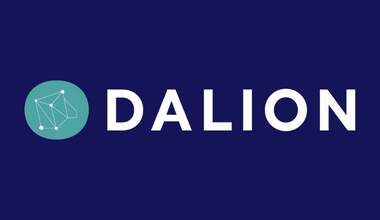Sector: Multiple
Aplicación: Digital identity
Empresa: Banca March, Banco Santander, CaixaBank, Generali, Inetum, Unicaja, Línea Directa Aseguradora, Mapfre, Repsol y la Universidad Politécnica de Madrid, junto con el consorcio Alastria
Dalion provides users with an application that allows them to manage their personal data 100% digitally. This data may be certified by companies and official bodies and will be stored on users’ own mobile device, thus ensuring their privacy.
With this application, users can decide with whom they share their data at any given moment in a quick, simple and secure way, in order to contract any service without having to fill out tedious forms.
For example, users could use their data (as verified by other entities) to enrol in university, apply for a job, hire a car, take out an insurance policy, apply for a loan, contract an electricity service, or sign up for any other service they wish, eliminating the need to send photos or certificates of their documents.
It also provides companies with the necessary software to easily manage interactions with users. This system enhances data security and quality, removes document verification costs, improves the user experience and increases the conversion rate (more customers completing the contracting process).
Dalion draws on the concept of self-managed identity and, specifically, on Alastria’s digital identity model (ID_Alastria), which is considered a de facto standard, as it is the basis of the formal UNE 71307 standard. It has also been raised to other international standardisation bodies, such as CEN/CENELEC, UNE’s counterpart in Europe, and has even served as inspiration for the European Commission’s decentralised identity initiative, ESSIF.
Implementation of the minimum viable product (MVP) is currently being finalised, after which numerous pilot projects will be deployed, involving both the promoting companies and observers. The use cases and implementations are expected to be widely diverse, considering that the participants are from different sectors (finance, insurance, energy, public administration and universities) and have a potential reach of more than 30 million users in Spain.
The project has observers from public institutions such as the city councils of Alcobendas and Oviedo, the Principality of Asturias and the Regional Government of Aragón, and universities such as the University of Extremadura and the University of Zaragoza. It is also one of the projects selected by the financial sandbox run by the Ministry of Economic Affairs and Digital Transformation for experimentation and innovation through financial technology projects.
Why blockchain?
Both the user application and the company application use blockchain, which provides certainty that the information is reliable and has not been altered, as well as proving its origin (who signed it). The use of blockchain ensures the integrity and quality of the data, avoiding duplications and errors, while safeguarding users’ privacy by preventing the traceability of the subject’s activity by third parties and not storing personal data outside the mobile device. It also allows for the automated issuance, verification and revocation of information.
How it works
- Users ask the organisations of which they are customers to certify their personal data, for example a university degree, bank account, driving licence or postal address.
- These organisations send the certified and signed data to the users’ mobile phone.
- Users can then provide this information when making use of certain services, e.g. hiring a car, where they are asked to provide certain details (driving licence, credit card, etc.).
- Users are able to share the requested details, as already validated by the organisations, simply and securely via their mobile phone.
- When the company offering the service receives this information, it is able to validate its origin and authenticity thanks to blockchain.
